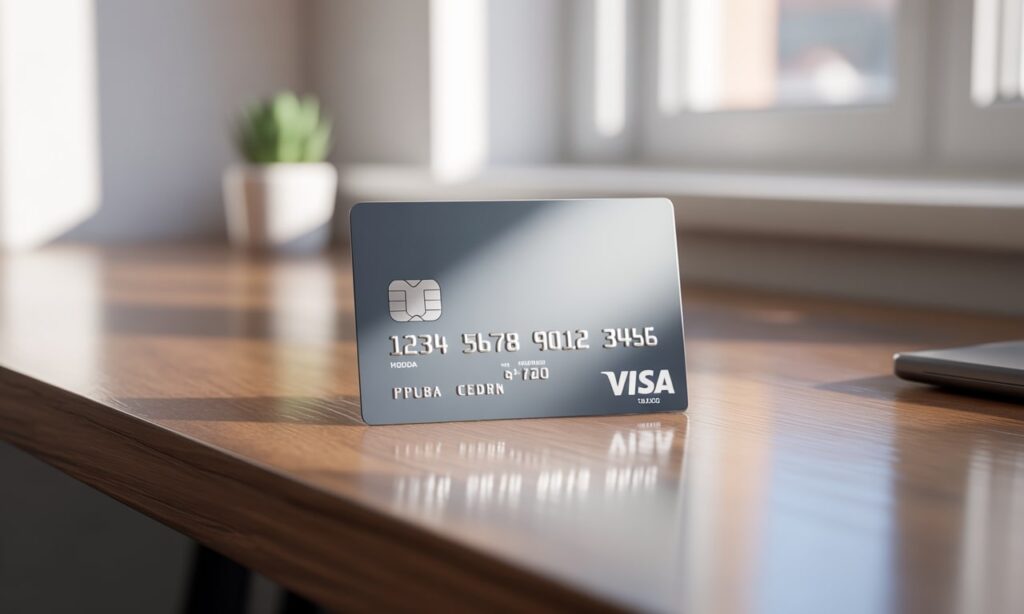How to Build Credit When Every Lender Says No

Trying to build credit is frustrating enough. But trying to build credit when every lender says no? That can feel like a locked door with no key. The catch-22 is real: you need credit to build credit, but without a history or a solid score, lenders don’t want to take a chance. So, what do you do when traditional paths are closed off?
The good news is, you still have options, even if they require a little creativity and patience. In this article, we’ll break down some practical, manageable steps for building credit when the usual avenues aren’t available. It’s not an overnight fix, but it is possible, and the effort is well worth it.
Start With What You Control: Bills, Rent, and Phone Plans

Even if lenders won’t give you a shot, that doesn’t mean you’re completely invisible to the credit world. Not all credit-building starts with loans or credit cards. In fact, you can lay a strong foundation using things you already pay for each month. Take rent payments, for example, there are services that can report your on-time rent history to the credit bureaus.
If you’re consistently making those payments, that’s a golden opportunity to turn everyday life into credit-building progress. The same goes for utility bills. Some companies let you report payments for essentials like electricity, water, and gas to your credit file. While these don’t carry the same weight as a credit card, they still count toward demonstrating reliability. Even cell phone plans can help.
If you’re on a contract and making timely payments, that positive history may be reportable as well. It might not be the flashiest method, but these consistent, responsible payments can show lenders you’re dependable, exactly what credit scores are built to recognize.
Explore Creative Credit-Building Alternatives
When traditional lenders won’t give you a chance, it’s time to think outside the box. Fortunately, there are several alternative credit-building tools designed specifically for people in this exact situation. These options may not come with all the bells and whistles of major credit cards or loans, but they’re practical, accessible, and proven to help build a solid credit foundation over time.
Secured credit cards are a great place to start. These require an upfront deposit, which typically becomes your credit limit. Because there’s less risk for the issuer, they’re easier to qualify for. Best of all, they function like a regular credit card, giving you a real, reportable credit line to work with, provided you make timely payments.
Credit-builder loans are another option. These aren’t like traditional loans where you get the money upfront. Instead, the lender holds the loan amount in a savings account while you make monthly payments toward it. Once you’ve paid it off, you receive the funds, and the entire payment history is reported to the credit bureaus.
Authorized user status can also help. If a trusted family member or friend has good credit and is willing to add you as an authorized user on their credit card, you can benefit from their positive payment history. You don’t even need to use the card; just being listed on the account can help give your score a gentle boost, assuming they manage it well.
Retail and gas credit cards tend to be easier to get approved for than traditional cards. If you qualify for one, use it sparingly and pay off the balance in full each month. Responsible use of these cards can begin to build the credit profile that lenders want to see. While none of these tools offer overnight success, they can gradually build your creditworthiness and open the door to better financial opportunities.
Build Healthy Habits from Day One
The moment you get access to any form of credit, even a small one, your habits start to matter. A lot. Credit scores are built on trust and consistency, not flashy spending. Here are a few core principles to follow:
- Always pay on time: Payment history makes up the largest portion of your credit score. Even one late payment can set you back significantly.
- Keep balances low: Credit utilization matters. Try to keep your credit card balances below 30% of your available limit, and lower is even better.
- Avoid unnecessary applications: Every hard inquiry can cause a small dip in your score. Don’t apply for cards or loans just to see what happens.
- Check your reports regularly: You can request a free report from each of the three major credit bureaus once a year. Keep an eye out for errors or fraud, and dispute anything that doesn’t look right.
By building these habits early, you’re setting yourself up for long-term success, even if your credit journey is starting off on the harder road.
Be Patient and Keep Pushing Forward

The reality of building credit when every lender says no is that it’s a slow climb. But slow doesn’t mean impossible. With time, persistence, and smart strategies, your situation can and will improve.
Here’s what to keep in mind:
- Credit history takes time: Lenders want to see a consistent pattern of behavior, not a quick burst of good habits. Stick with your strategy.
- Celebrate small wins: A 10-point increase in your score might not feel like much, but it means you’re heading in the right direction. Momentum matters.
- Keep using your tools: Don’t abandon your secured card or credit-builder loan once you qualify for a traditional product. Use both strategically.
- Stay informed: Rules and tools around credit are always evolving. Keep learning and adapting.
Credit isn’t just a number. It’s a signal to the financial world about how you manage money. When lenders say no, it doesn’t mean you’re irresponsible; it just means you haven’t had the chance to prove yourself yet. With consistency and patience, you can change that.
Read More: Managing Your Credit Utilization
Conclusion
Figuring out how to build credit when every lender says no is discouraging, but it’s not the end of the road. There are other paths, less obvious, maybe slower, but absolutely effective. From leveraging rent and utility payments to exploring secured cards and credit-builder loans, the tools are out there.
Add in responsible habits and a little patience, and you’ll be on your way to better credit. No, it’s not easy. But it’s doable. Your credit comeback doesn’t require a miracle. It just requires that you start, stay steady, and trust that your efforts will pay off. Because they will.

Pranab Bhandari is an Editor of the Financial Blog “Financebuzz”. Apart from writing informative financial articles for his blog, he is a regular contributor to many national and international publications namely Tweak Your Biz, Growth Rocks ETC.








